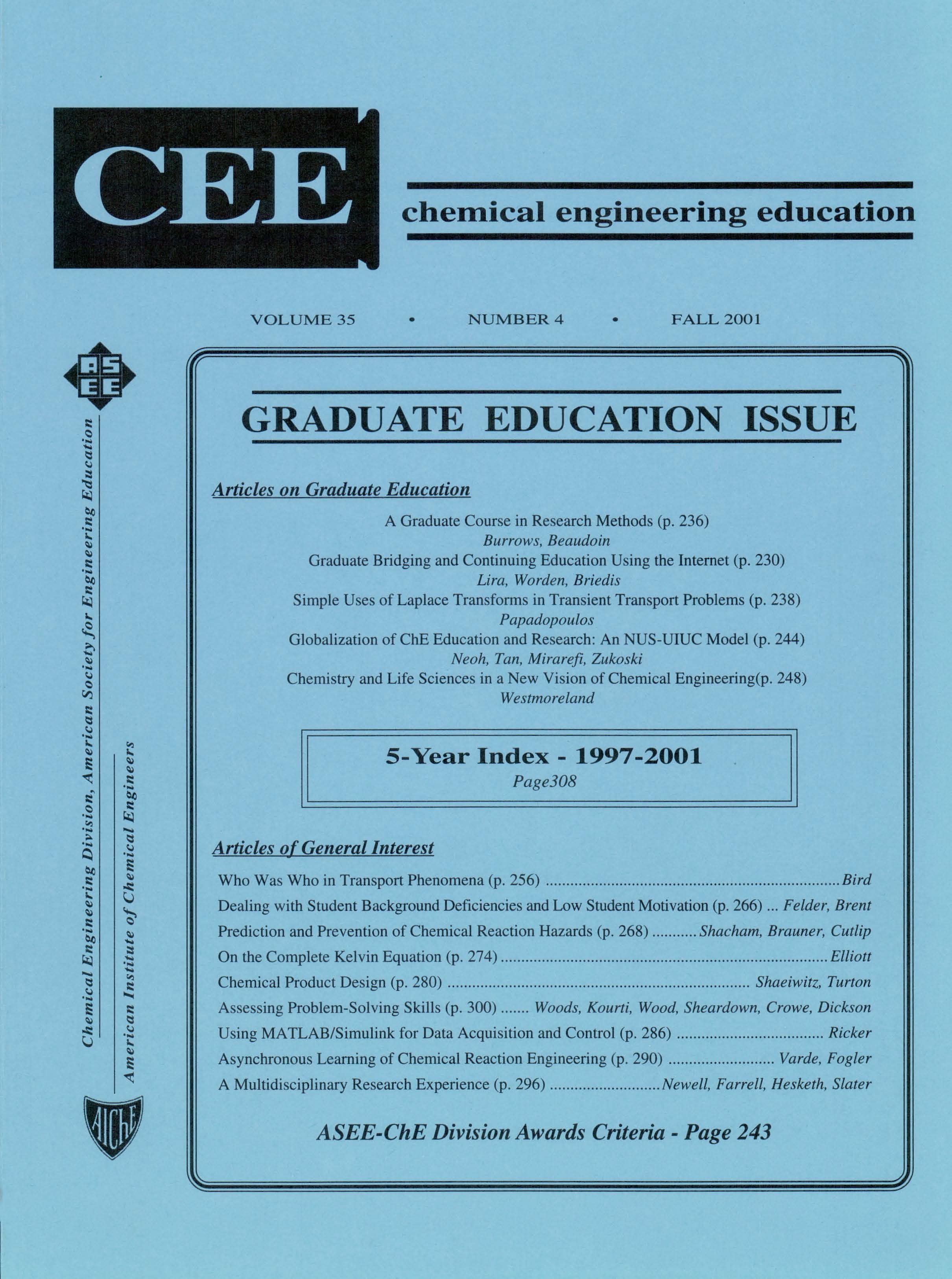Asynchronous Learning of Chemical Reaction Engineering
Abstract
In the last five years, there have been significant advances in technology, such as the widespread use of the Internet. With this technological progress, education has begun to move forward to better accommodate the diverse needs of students. With this concept in mind, we explore the idea of Asynchronous Learning (AL). AL is based on the idea that students can learn course material at different times and locations, in contrast to synchronous learning, in which students learn by attending a conventional lecture or laboratory. The asynchronous learning environment provides students with the teaching materials and tools for registration, instruction, and discussion, however; there are no lectures. The key to a successful AL course is to provide students with material with which they can continually interact.
Seven students took the Principles of Chemical Reaction Engineering asynchronously during the summer of 2000 and all successfully completed the course. Interactive CDs containing lecture notes with audio clips and self-tests, interactive computer modules, and example problems were given to the students to supplement the textbook. There was also a course website containing unit descriptions, class information, course grades, a bulletin board, and updates. Traditionally a four-credit-hour class for junior-level students, the course was broken down into 21 units of reading assignments and homework. Additionally, students completed an open-ended project to further explore chemical reaction engineering principles, and took two exams and a final exam under the observation of a proctor. A teaching assistant checked his e-mail throughout the day and early evening to respond to the student's questions. Some of the most important positive outcomes of the course were that the responsibility for learning the material was transferred from the professor to the students and that students felt more self confident after having taken the course. The downside was that the students missed face-to-face interaction with the professor, teaching assistants, and other students.


